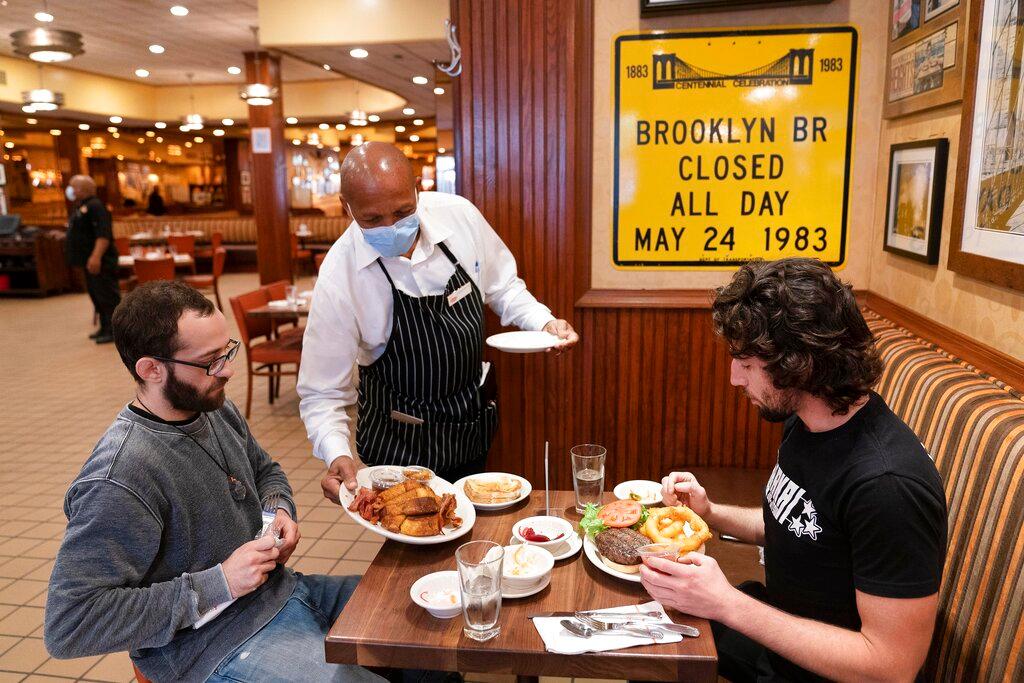US businesses face Jan 4 deadline to get workers vaccinated
Vaccine mandates targeting businesses with more than 100 employees, as well as healthcare workers and federal contractors, represent the most aggressive steps Washington has taken against the virus and the Delta variant.
Just In
President Joe Biden’s administration on Thursday set a Jan 4 deadline for enforcement of strict rules intended to push tens of millions of American workers into getting Covid-19 vaccines
The mandates targeting businesses with more than 100 employees, as well as healthcare workers and federal contractors, represent the most aggressive steps Washington has taken against the virus and the Delta variant, which has hobbled economic recovery.
“Vaccination is the single best pathway out of this pandemic. And while I would have much preferred that requirements not become necessary, too many people remain unvaccinated for us to get out of this pandemic for good,” Biden said in a statement.
“I’m calling on employers to act. Businesses have more power than ever before to accelerate our path out of this pandemic, save lives and protect our economic recovery.”
Under the regulations, workers at private firms will have to be fully vaccinated by Jan 4, 2022, or wear a mask in the workplace and undergo weekly testing.
Employers will be required to provide paid time off for workers to receive immunisations.
The rules will require the majority of American healthcare workers to receive vaccines, while regulations for federal contractors will depend on their workplace, the White House said.
The regulations will affect more than two-thirds of the country’s workforce, according to the Biden administration, and will join mandates by major companies as well as some states.
Biden debuted the rule in September amid growing concern over the country’s flagging vaccination rate, leaving federal agencies to finalise their implementation.
The Republican opposition has decried them as an overreach and some business groups warn they would be disruptive.
‘Turning point’
The world’s largest Covid-19 outbreak is among issues that have weighed on Biden’s presidency in recent months.
His Democratic party suffered a humiliating defeat in Virginia’s election for governor this week, while lawmakers in Congress have yet to reach an agreement on two spending bills Biden has put at the center of his policy agenda.
Economic growth soared and millions went back to work after Biden took office in January just as Covid-19 vaccines became widely available.
But third-quarter growth slumped and September’s hiring was the weakest of the year as the Delta wave sent infections spiking, making businesses – and workers – more cautious.
While some companies including major air carriers have imposed their own vaccine requirements, Republican lawmakers compare the federal mandates to a “dictatorship,” and state attorneys general from the party already have sued the government over the rules.
States versus Washington
The governor of Texas went as far as to put a ban on Covid-19 vaccine mandates, including those imposed by private companies.
But the White House said the “new rules preempt any inconsistent state or local laws, including laws that ban or limit an employer’s authority to require vaccination, masks, or testing.”
Solicitor of Labor Seema Nanda meanwhile said the government “will consider whether to extend the rule to smaller companies.”
Workers who refuse to follow the regulations will not be exempt from disciplinary action by their company, said Jim Fredrick of the Occupational Safety and Health Administration.
Industry reacted with unease to the requirements, with the Society for Human Resource Management releasing a poll last month saying 90% of employers surveyed would find it difficult to implement the mandates.
They asked the government to seek public comment before rolling out the regulations.
David French of the National Retail Federation warned “the Biden administration has chosen to declare an ’emergency’ and impose burdensome new requirements on retailers during the crucial holiday shopping season.”
The United Food and Commercial Workers, whose members work in settings with high Covid-19 risks like grocery stores and meatpacking plants, called the mandates a good first step but said employers should do more to protect workers.
“Ensuring that workers have a voice in Covid workplace safety policies is critical to guaranteeing these measures are implemented fairly and build the trust and strong consensus needed for these safeguards to be effective,” the union’s president Marc Perrone said.
Subscribe to our newsletter
To be updated with all the latest news and analyses daily.
